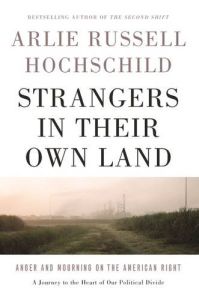Join getAbstract to access the summary!

Join getAbstract to access the summary!
Arlie Russell Hochschild
Strangers in Their Own Land
Anger and Mourning on the American Right
The New Press, 2016
What's inside?
Sociologist Arlie Russell Hochschild offers insights into the US right-wing electorate.
Recommendation
More and more, Americans feel like strangers to one another over what sociologist Arlie Russell Hochschild calls “an increasingly hostile split” in attitudes. A professor emerita of sociology at the University of California at Berkeley, Hochschild traveled to Louisiana repeatedly over a five-year span starting in 2011 for field research on the American Right. She attempts to analyze and understand the emotional motivations of her new “Tea Party friends.” Conservatives might feel Hochschild failed to take their perspectives on board; liberals might see a paradox in her effort to develop empathy for people who can appear to lack empathy for themselves. getAbstract recommends Hoschchild’s fascinating research and conclusions to US voters of any ideology and to all non-Americans who seek greater insight into the sometimes contradictory, sometimes inexplicable behavior of the US electorate.
Summary
About the Author
Influential sociologist Arlie Russell Hochschild’s nine books include The Second Shift, The Time Bind, The Managed Heart and The Outsourced Self. Three of her books were New York Times Notable Books of the Year.
















Comment on this summary